Little did I know when I wrote this title how accurate it would prove.
Having “put pen to paper” on my final client report and recommendation mid January, I was hit by the devastating event of my mother passing.
The following weeks have proved traumatic to say the least and taken me time to recover!
Drop everything, we need you!
It’s mid October and I get a message from a former client requesting my help to lead the Lessons Learned component of the inaugural UK Caribbean Infrastructure Fund (UKCIF) conference:
… I would like to ask if you might still have availability and interest. The event is Nov 20 to 24!
UK Caribbean Infrastructure Fund (UKCIF), which provided funding for the Conference, is a £350 million grant-funded programme from the UK Government to build climate-resilient, inclusive infrastructure and boost economic growth in the Caribbean.
Having stepped back from consulting to focus on an expanding business interest I wasn’t initially enthused. The timetable was absurdly tight. I had less than a month to develop an agenda to cover the first couple of days for a disparate group of stakeholders. And, I would have to get the 60+ representatives from 13 countries to prepare the story of their project in advance then to create an environment that promulgated the sharing and adoption of lessons from major infrastructure projects in the Caribbean. Here’s the initial brief:
“The Lessons Learned Workshops are designed to provide a platform for participants from diverse sectors and countries to share and extract valuable insights from the implementation of their projects. The primary objective is to facilitate effective knowledge exchange at sector, country, project, and cross-cutting thematic levels.
Additionally, the workshops aim to equip participants with the skills to independently conduct lessons learned sessions within their respective teams upon returning to the execution of the project.”
Additionally, I would have to do all of this under the watchful eye of the UK’s Foreign, Commonwealth & Development Office (FCDO), the sponsors.
BUT!
I love the Caribbean, I’d never been to St Vincent (host country), I liked and trusted the person I’d be working most closely with, and it felt like the ultimate challenge; an opportunity to leave a legacy footprint drawing on 50 years of international assignments.
So, I said yes and sent off a provisional outline agenda / proposal in response to their terms of reference.
Agreeing the agenda
This was never going to be easy; getting everyone on the same page in 3 weeks while creating materials for the event, developing pre event ‘homework’ tasks and producing a short “welcome to the event” video for the delegates.
Ahead of the video production we gathered virtually for a stakeholder briefing. I began by asking each to identify what a successful event might look like. I find it important (assuming everyone is willing to work colllaboratively) to get an understanding of the motivations of those who have most to gain/lose from an intervention. And if there are widely differing opinions then that too is informative.
Flights booked, hotel reserved and taxi sorted for journey to LHR I set about the task of creating an agenda and the pre event ‘homework’. Here’s what I asked the delegates to do:
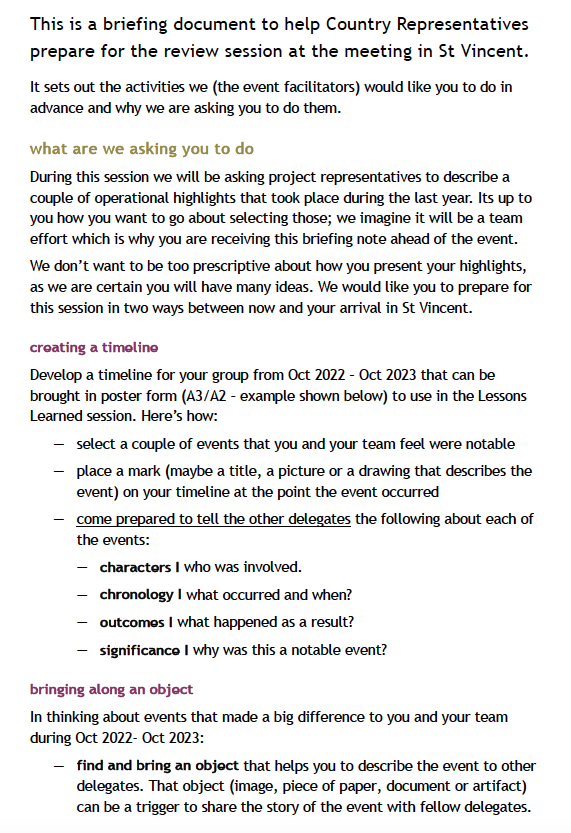
Getting started
My challenge: to strike an effective balance between experiential learning and data collection. I wanted delegates to take away a set of tools “Knowledge Products” that they might use to improve the way they undertake major infrastructure projects while concurrently identifying a set of tangible lessons that could be applied from day one.
Our Day One objective:
Today is about surfacing learnings already identified, arriving at a shared understanding of the term lessons learned, the importance of conducting Lessons Learned processes and developing a general understanding of what critical knowledge looks like for each project.
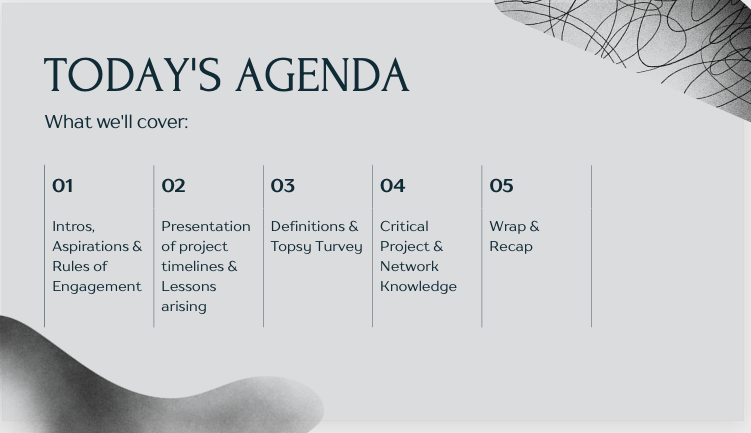
Day One takeaways
Having encouraged the delegates to reflect on what struck them during the day this stood out:
And these keywords emerged:
Dress: Elegantly Casual
At events such as these it’s often the post activitiy discussions that lay the foundations for future collaboration. St Vincent proved to be an excellent host with the Prime Minister / UK High Commissioner’s reception a particular highlight.
On previous visits to the Caribbean I’ve always admired how people dress for formal gatherings and this was no exception aided no doubt by the suggested dress code on the invitation.
And an impromptu evening at a local fish bar spawned new friendships; what’s not to like about these offerings?
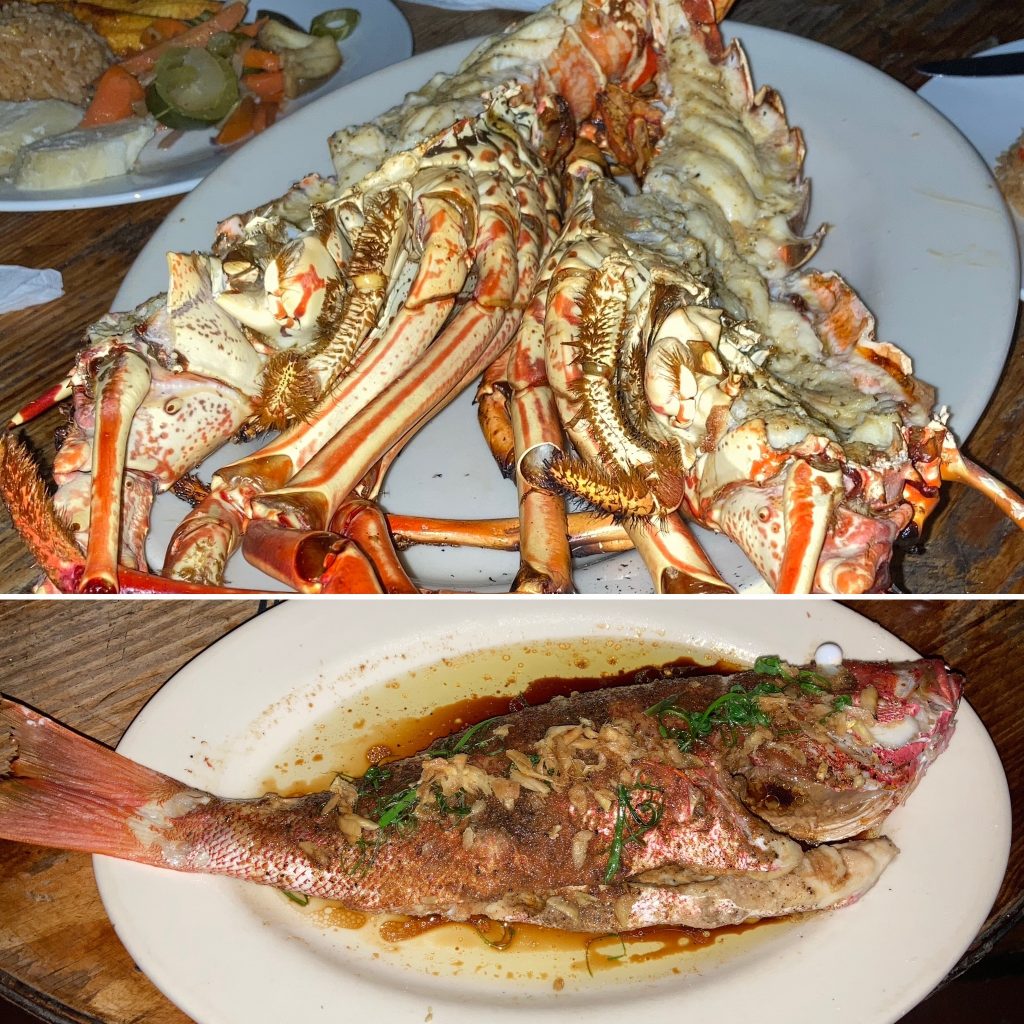
Keeping the momentum going
After a short recap, I set out our aims for Day Two:
As Day One surfaced several lessons while providing a good theoretical underpinning, so Day Two will focus on practical application, capacity
building and the use of different tools for capturing and incorporating lessons, based on Active UKCIF projects.
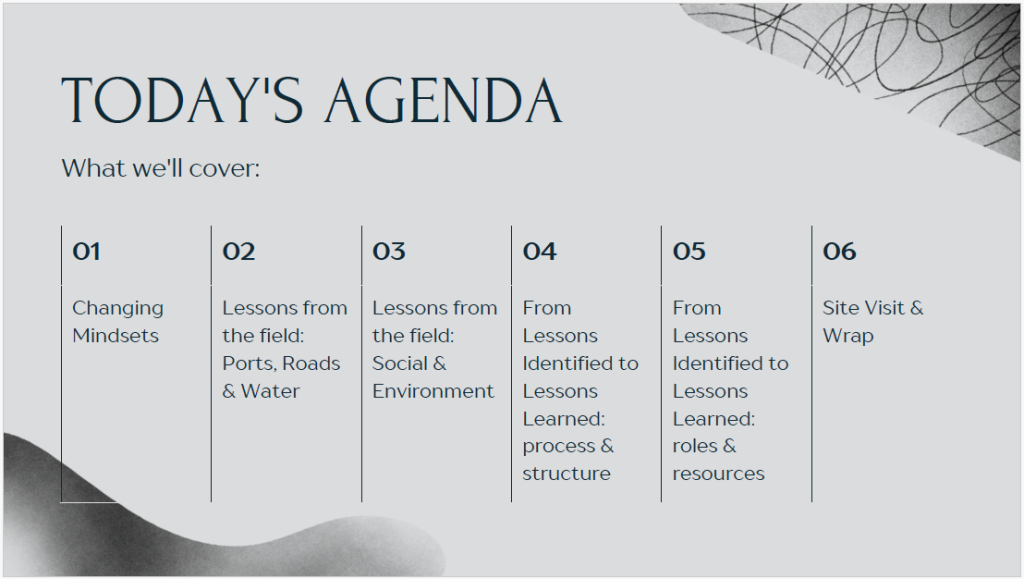
We used a variety of techniques to identify and make use of the lessons that emerged during the day.
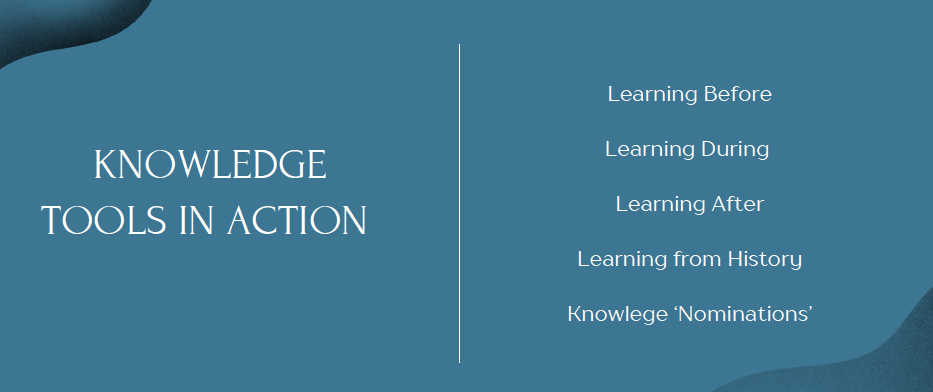
The Peer Assist session was enthusiastically adopted and a raft of excellent suggestions surfaced.
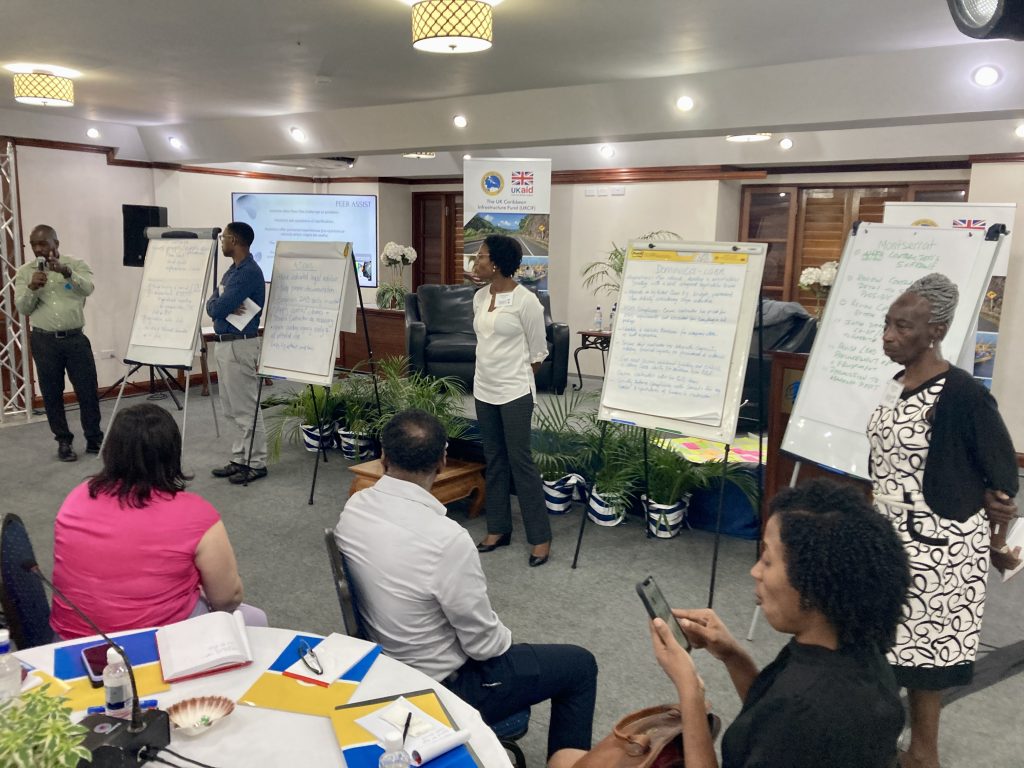
Here’s what the various projects said about the discussions:
“The support was overwhelming, one point, verify the condition of the equipment being provided by the contractor before engaging with them”
“Issues were around implementation. The conversation was amazing; it came up with a number of things we needed to focus on including the establishment of a technical committee the project team might reach out to for advice”
“We had a very productive discussion. Three areas; Develop a negotiation strategy and team ahead of the award; negotiate on big tickets items and consider scope reduction to deliver cost savings; look at methods that are more familiar to contractors to ensure bids are lower.”
“Issue was around set up and procurement of resources. One suggestion, to look at what can be done by the client to mitigate the lack of resources”
And finally
The event underpinned the power of story. Here’s a powerful example from the Day One project presentations:
Port Project: Anticipating the unexpected!
It was anticipated that local aggregates would be used for the project, but local materials did not meet the requirements when tested. So, the decision was taken to import aggregates, but the source country was known to have these African Giant snails. The decision-making around this issue took many months and resulted in a delay, but it was necessary to have the Biosecurity plans to prevent, eradicate or contain any invasive species.
I could not have chosen a better location or group for a swansong event. There is a warmth and generosity of spirit among the people of the Caribbean (the climate and environment help) and humour plays an important role in establishing the right environment for people to share.
We surfaced a number of themes to work on when undertaking major infrastructure projects.
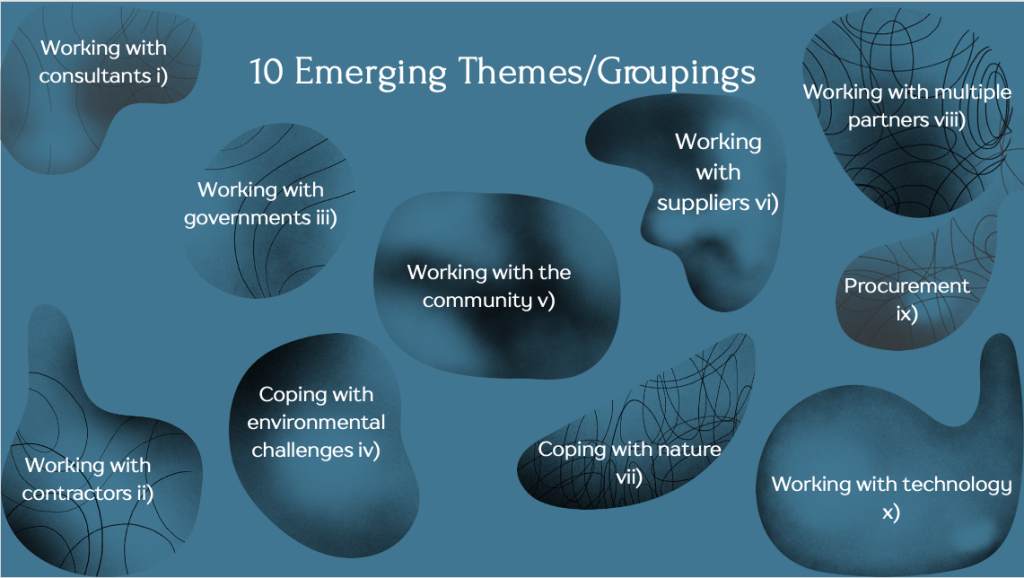
Thank you St Vincent and CDB.
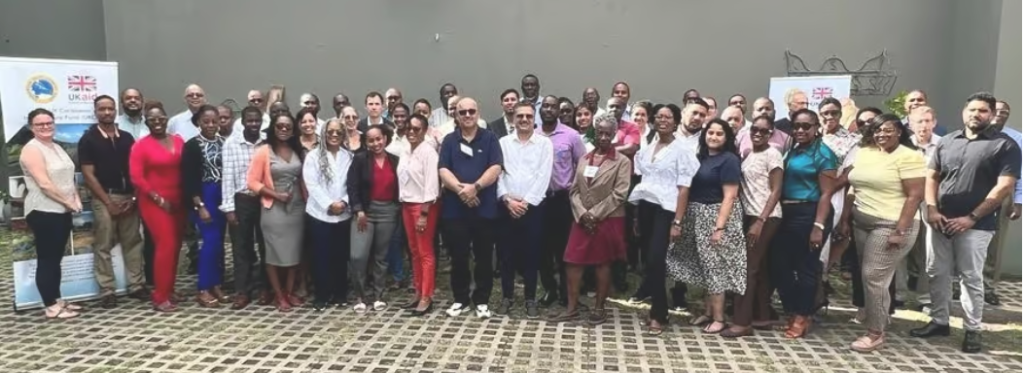

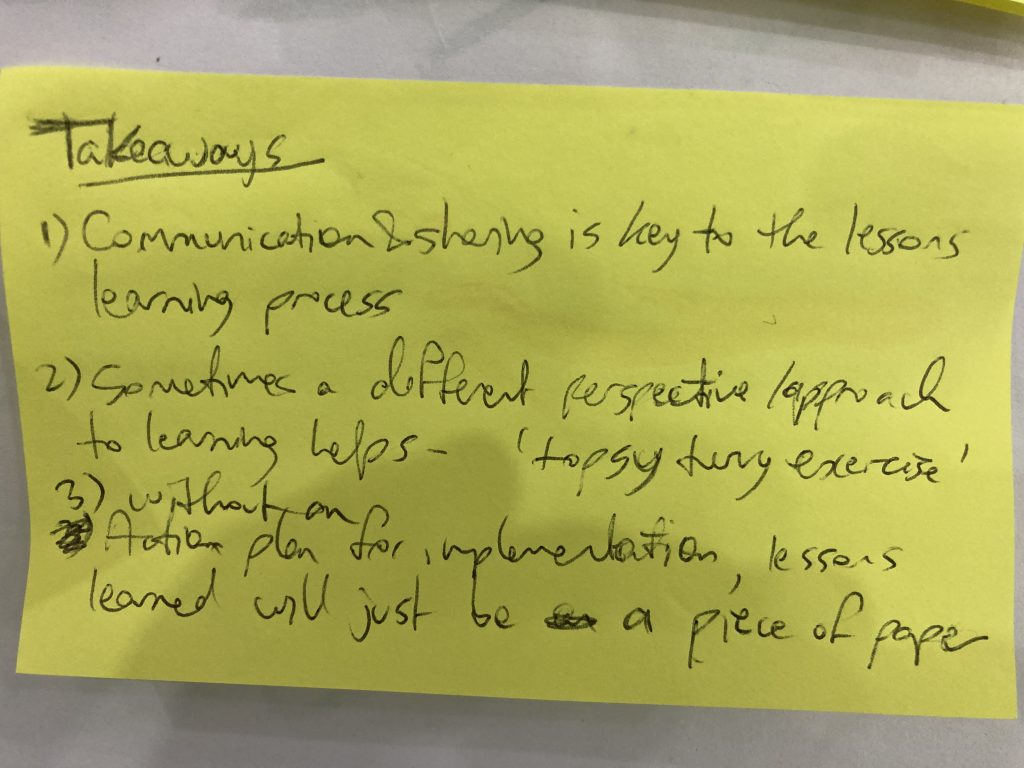
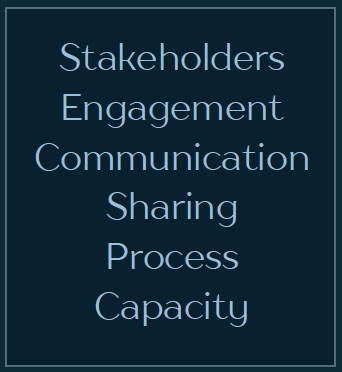
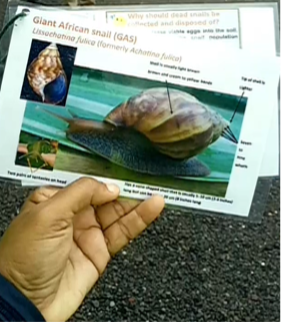
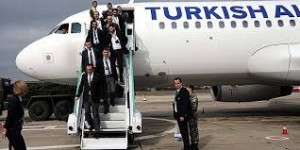 minute drive to
minute drive to 